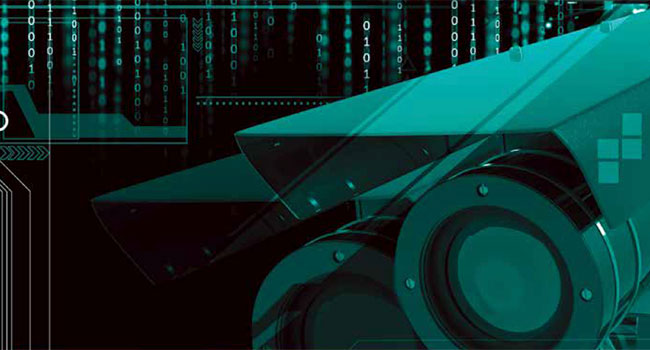
INDUSTRY PROFESSIONAL
The Resurgence of LPR
ISC West renews interest in advances in technology (cloud and artificial intelligence) and new business opportunities for resellers
- By Navanee Sundaramoorthy
- May 31, 2022
One noticeable trend on the ISC West show floor this year was the resurgence of License Plate Recognition (LPR) systems. Numerous vendors were showcasing LPR, and there was a steady crowd of integrators and resellers in line to see demos of the technology. But why the renewed interest in LPR in 2022? After all, LPR—also known as Automatic License Plate Recognition (ANPR) in some parts of the world—has been around more than a decade.
The answer is driven by two factors.
- Major advances in LPR technology.
- A growing understanding of the lucrative markets that LPR can unlock for resellers.
LPR in 2022 is not the same as LPR in 2012. Today’s LPR systems are cloud-based, artificial intelligence (AI)-enabled, and much more accurate than previous LPR systems. Resellers who have avoided LPR in the past because of the complexity and expense are drawn to modern LPR systems that are easy and affordable to deploy and operate.
An important differentiator for resellers is the ability to use existing cameras for LPR. That means standard security cameras in the parking area, building exterior, drive-through or curbside pick-up area can easily be used for LPR as well as for general security needs. When there is no need for expensive specialty cameras, LPR technology is much more attractive to resellers.
Resellers Expand into New Markets with LPR
Using the right LPR technology, resellers can tap into attractive new markets, such as parking, a $9.9 billion industry, according to Ibis World. LPR is an attractive add-on service for homeowners associations (HOA), retail of all kinds, drive-through and curbside pick-up, healthcare and education campuses, critical infrastructure and industrial facilities, and any corporate office.
Security is a top concern for homeowners associations (HOAs). With a cloud-based LPR system, HOAs can easily share video with law enforcement directly from a cloud VMS. The HOA can give police important metadata, such as vehicle color, make and license plate number, as well as video of an incident, arming law enforcement with strong evidence to fight and solve crime.
Quick service restaurants (QSRs) want to live up to their name, providing fast, efficient service. For quality assurance and efficiency, QSRs like to assess their customers’ experience from the moment they arrive. Most QSRs have existing cameras monitoring the entrance and exit. By simply enabling LPR on these existing cameras a QSR can measure metrics such as “abandonment” (customers who drove away from a QSR), and they can examine trends in queue lengths and service time to make staffing decisions, improve operations and enhance the all-important customer journey.
Integrations and AI Make the Difference with LPR
The business intelligence derived from LPR can be augmented by integrating with other systems. When LPR is cloud-based and part of an open VMS platform, resellers can customize systems for their end users’ specific needs.
While the possibilities are endless, popular integrations include point-of-sale (POS) systems, and visitor management systems for facilities that want to streamline access for residents, visitors and vendors. For situations where a parking facility is used by more than one business, LPR can be integrated with a Parking Access and Revenue Control System (PARCS), enabling the business to automate parking in both gated and gateless garages. In both scenarios, it’s a premium customer experience: fast and touchless. But it’s also efficient for the facility or security director because cloud LPR allows them to ensure only authorized vehicles enter the facility and fees are paid. The system also streamlines ticketing of vehicles who have not paid fees or who park illegally.
Terms such as artificial intelligence, deep learning and machine learning are commonly–but not always accurately–used to describe how newer LPR systems operate. What’s the difference? Here’s a high-level overview. Artificial intelligence (AI) is the overarching term used to describe human-like intelligence in machines, while machine learning and deep learning are subsets of artificial intelligence. The latest cloud video surveillance LPR systems use deep learning with the AI models trained using millions of images. The result is very high accuracy.
When LPR was initially deployed in the U.K. in the early 1980s, the systems used traditional computer vision algorithms to read license plates. Because UK license plates are standardized, the algorithms worked well and LPR quickly gained popularity. This was not the case in other parts of the world, such as the United States, where there are more than 6,000 license plate varieties, or in India where license plates come in single line, dual line, stacked, and may have more than one language on a single plate.
Traditional LPR systems that work fairly well in the UK are only accurate about 60 percent of the time in other parts of the world. In addition, traditional LPR systems do not perform well in challenging environmental conditions.
Equipped with AI, the new cloud-based LPR systems are highly accurate, even when the license plate is non-standard, when the lighting or weather is poor, or when camera angles are tricky. Because it’s AI-based, the LPR system is always learning, and accuracy just gets better as time goes on.
With the new cloud-based AI capabilities, ease-of-use, and ability to re-use readily available security cameras for LPR, it’s no surprise that LPR stole the show at ISC West this year. It will be interesting to see how resellers will expand their businesses and move into new markets with the resurgence of license plate recognition technology.
This article originally appeared in the May / June 2022 issue of Security Today.